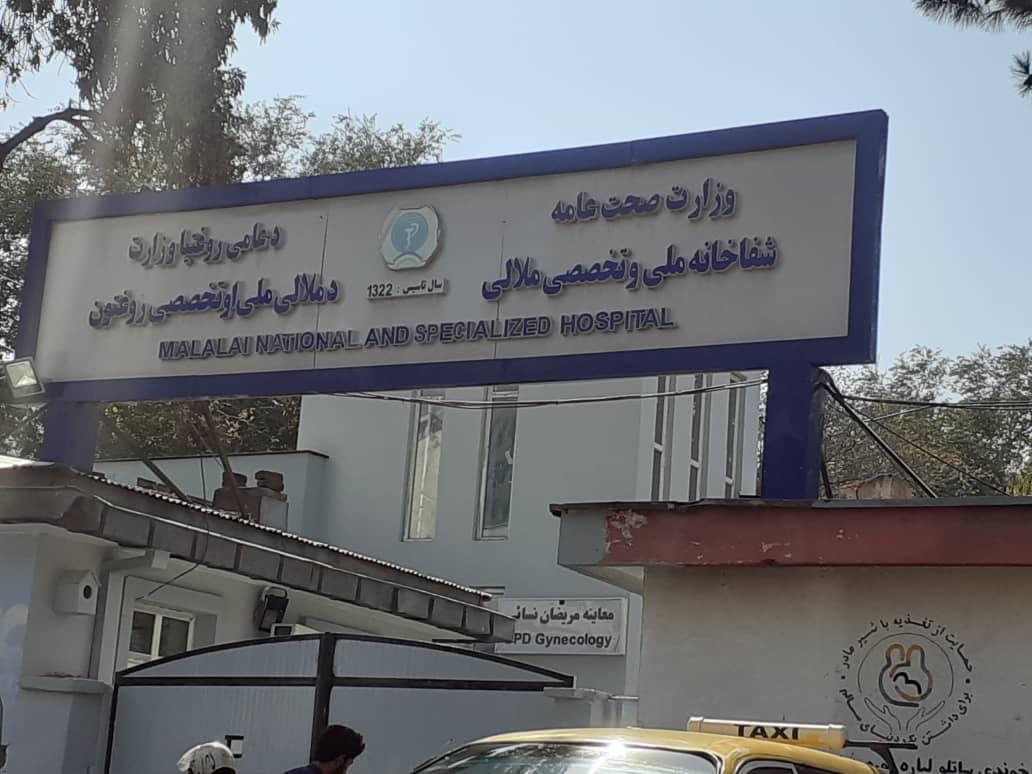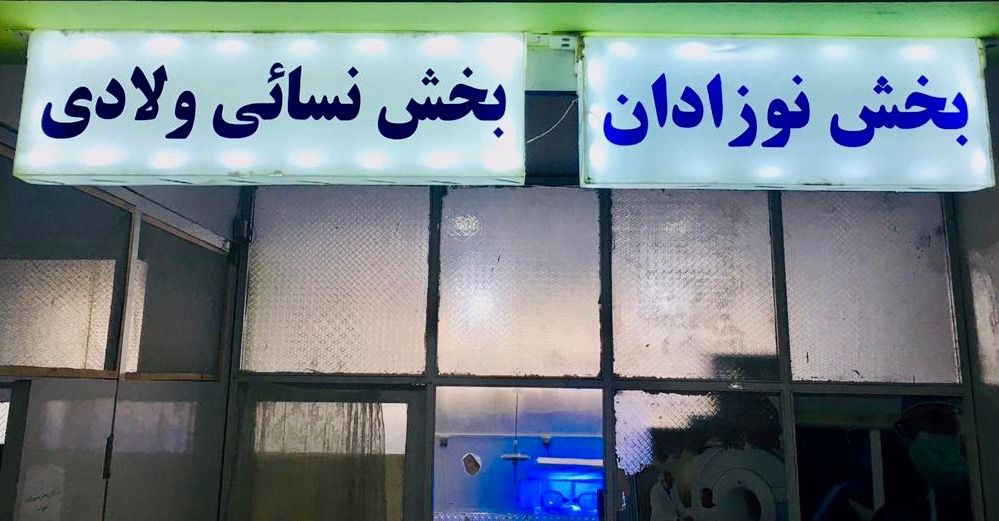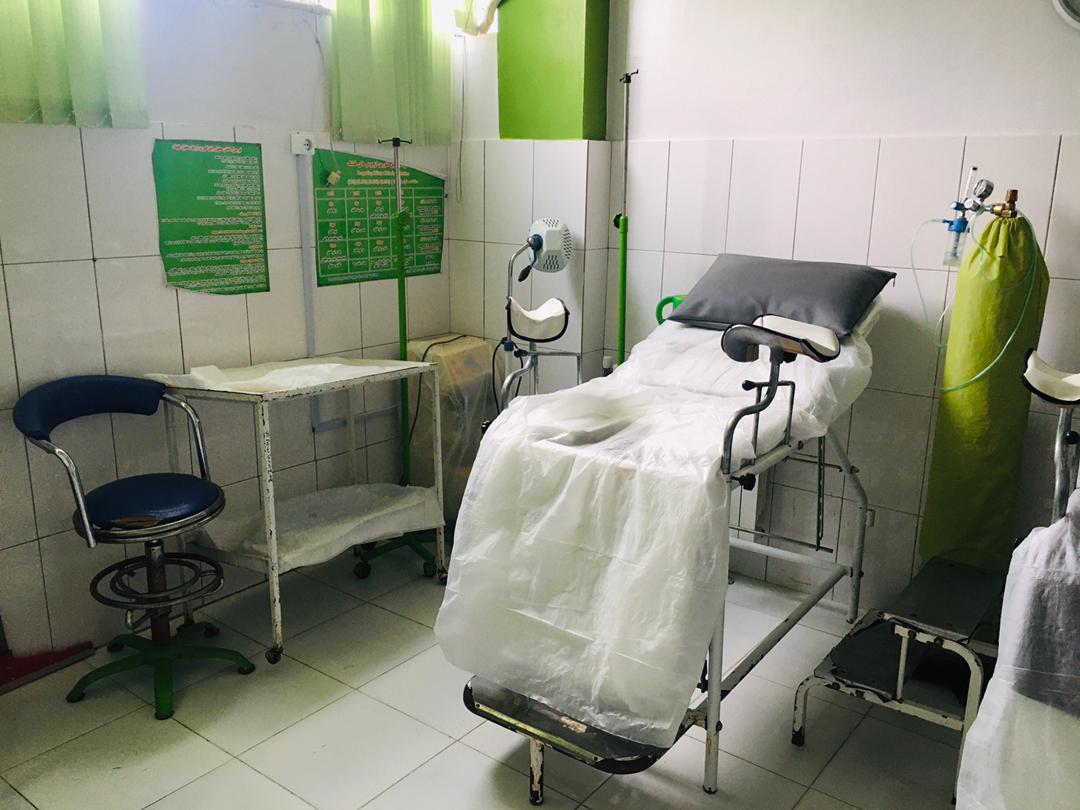Pregnancy and its Perils
Afghan women pregnant during or after the fall of Afghanistan talk about the perils of pregnancy and childbirth in a male-dominated country with low quality healthcare.

Written by Razia Jafari
KABUL, AFGHANISTAN — The collapse of Afghanistan’s previous government in August of 2021 presaged a dramatic increase in unemployment and consequently a decrease in per capita income.This, along with steep cuts in international aid reduced the accessibility of healthcare services, and several clinics in different parts of the country closed due to lack of equipment and the inability to continue paying healthcare personnel.
The mounting limitations in healthcare services impacted pregnant Afghan women the most, to the extent that some women avoided getting pregnant by any means or have aborted their fetus, fearing the possibility of not being able to take care of their babies.
A number of Afghan women in interviews with Alive in Afghanistan say that the deterioration of the economic situation has caused them many problems, including issues with access to healthy nutrition, blood deficiency which according to these women causes the most harm to pregnant women and their fetuses both before and after birth.
According to them, Afghanistan’s fall caused experienced healthcare specialists to flee and the import of medicines and medical services to stop.
The United Nations Population Fund (UNFPA) in a press release in August said that, “Afghanistan has the highest maternal death rates in the Asia and the Pacific regions with about one woman dying every two hours due to preventable pregnancy and childbirth complications.”
UNFPA added that, “Women’s lack of access to facilities for safe deliveries is one of the contributing factors to this grim situation.”

According to an updated press release by the UNFPA, an estimated 24,000 women who give birth each month in hard-to-reach areas of the country face particular challenges in accessing hospitals or health facilities.
Alive in Afghanistan’s reporter, 22 year-old Razia Jafari, who was pregnant herself during the fall of Kabul was asked to write about her situation. Mrs. Jafari is one of the women who has faced many problems during her pregnancy. Part of this story is her recollection of that period.
With the fall of the republic, my husband and I both lost our jobs. We were working for a local news agency and had gotten married just days before the fall of Kabul.
I didn’t want to get pregnant right after marriage; but my husband’s family is very traditional and in their world, a newlywed bride must get pregnant within the first months of getting married. They would criticize me and their words really hurt. At that time I lived with my husband’s family.
It is usual in Afghanistan for families to continue living together even after the male children are married.
I got pregnant a couple of months after our marriage, but couldn’t take good care of my baby because we both were unemployed and hurting financially. We couldn’t afford going to an obstetrician for checkups, nor could I eat nutritious food. In the meantime the heavy load of house chores was damaging both my physical and mental stability.
None of the members of my husband’s family would help me. Traditional Afghan families believe that the son’s wife must shoulder all responsibilities when it comes to house chores.

This was the first time I was pregnant, with no prior experience, shouldering the huge responsibility of cooking and cleaning was something I couldn’t endure. I was constantly suffering. Amidst all that, colleagues from Alive in Afghanistan and ProPublica, a newsroom that aims to produce investigative journalism in the public interest contacted me to ask about the August 26, 2021 bombing at Kabul airport’s Abbey Gate. My husband Massood Haidari and I were both at the gate when the bombing happened.
For more information about the Abbey Gate bombing, please read Alive in Afghanistan’s three investigative stories; Report: U.S. Marines Returned Fire After Suicide Bombing, but No Enemies Were Shooting at them, Suicide Bomber Who Killed U.S. Troops and Afghans “Likely” Used Unguarded Route to Kabul Airport Gate, and Fear on Every Corner, the Final Days of the U.S. War in Afghanistan.
I started working with Alive in Afghanistan as a reporter after the investigation was over. This job came at a time when our situation was anything but ideal, poverty was increasing and we had no income. It was a key fortunate event, circulating blood back to our veins.

Finally the time came when I was giving birth. We went to a public hospital and there the doctors told me, “The time for childbirth has passed and we must get the baby out by performing c-section.”
Currently in Afghanistan’s hospitals the number of qualified health staff are decreasing and the stores of medicine are very low. I didn’t trust the words of the doctors at the public hospital and went to a private hospital. The doctors at the private hospital also spoke about performing a c-section. They were saying that my baby is overdue and also she has eaten her own excrement.
“If we don’t perform a c-section, we might lose the baby or the mother,” the doctors said.
The operation cost 30,000 Afghanis ($346). We couldn’t afford that, we still owed the monthly rent for our home. We asked friends for help but they couldn’t help either.
This is when three months of salaries from my new job were paid and we were able to pay for the c-section. But my situation didn’t get any better. I was in constant pain after the operation to the point that I didn’t see my baby for one and a half days after her birth.
Among all this, I was more concerned about keeping my job than I was with keeping myself or my child healthy; because finding a job in the current situation in Afghanistan, especially for women, is quite difficult if not impossible.
Despite the fact that my agency helped me a lot, would recommend that I not work if I am uncomfortable, gave me a month of leave and paid me a month in advance, the stress that I had in that situation didn't allow me to rid myself of that fear.
Despite my issues as a pregnant woman, I am not alone. Sima Ahmadi, a 24 year-old woman from the Dasht-e Barchi neighborhood of Kabul is another woman who endured a lot of problems during her pregnancy.

“Every mother wishes she has good memories of the time when she is pregnant, but this was not the case for me,” Mrs. Ahmadi told Alive in Afghanistan.
Mrs. Ahmadi’s story is very similar to mine. Her husband lost his job as the financial manager of a local swimming pool after the fall. He was the sole breadwinner of their family.
Mrs. Ahmadi’s husband currently sells household grocery items from a pushcart he owns on but he on some days cannot even earn enough money to buy a loaf of bread.
Mrs. Ahmadi gave birth to her first child a year and a half after being married. The fall of Kabul was very stressful and the beginning of endless concern for all Afghans, including Mrs. Ahmadi. Despite being five months pregnant during the evacuation, Mrs. Ahmadi and her husband reached the thousands of people that were flocking the Kabul airport in hopes of fleeing Afghanistan. In the end, like many Afghans, their trip to the airport was in vain.
Sima and her husband spent nights crushed amid a crowd of mostly men in the struggle to leave, but ultimately failed to get past the gates. While they waited outside the airport, desperate to escape, sporadic gunfire by the Taliban who had just taken over Kabul created a terrifying experience for Sima.
She believes this time, “May have had a profound effect on the child in my womb.”
After returning from the Kabul airport, Sima’s husband tried finding work without success. Sima, who had been visiting an OBG/YN since her pregnancy began could no longer afford to go to one, something that gave her husband a lot of worries.
“When it was time for giving birth, we first went to a public hospital, but seeing the level of services there, we decided it would be better to go to a private hospital instead,” Sima said.
The couple’s story does not end there, after their baby was born, “We couldn’t even afford to buy her the clothes we desired.”
This remains a bitter memory in Sima’s diary. The couple continues to struggle to provide nutritious food for Sima and their baby. Sima says, “My child is facing a shortage of milk, formula and food recommended by doctors.”

Shafiqa Mohammadi is yet another woman who is struggling due to chaotic and unpredictable situation in Kabul. The 35 year-old woman is fed up with the customs and traditions that continue to dominate Afghan households.
Mrs. Mohammadi, who is now the mother of five children, says “My in-laws are traditional people. They do not pay attention to the fact that I, like other women in the family, have limited capacity and should not be responsible for all house chores. This is the reason I have decided to not get pregnant again so I can take care of my children properly.”
According to her, her in-laws consider it disgraceful if their daughter-in-law goes to the doctor during pregnancy and does not allow her to go to the doctor periodically during her pregnancy. “They don't even consider doing heavy work as the source of future problems for the fetus in their daughter-in-law’s womb.”
She continues, "I used to turn the tandoor oven on and bake bread when I was nine months pregnant with one of my sons."
Tandoors are often deep clay ovens in the ground. The women cooking would have to lean in, or bend over to cook the bread. The same goes for lighting the fire.
Another problem that Afghan women have been dealing with for a long time is the delivery by "home-based midwives". Unlike in developed countries where midwives have become more and more popular, in Afghanistan "home-based midwives" or [Qabila-e Khanagi] are mostly women who have acquired the skill through experience rather than formal education.

“During the last days of my pregnancy with my third son, I was baking bread in the tandoor oven when labor pains took over my whole body, but my in-laws did not allow me to go to the doctor,” Shafiqa told Alive in Afghanistan.
According to Shafiqa, instead they called for an inexperienced midwife who pulled the baby out with her hands and used so much pressure that, "It created a large hole in my son’s shoulder.” Her son was eventually born, but sustained injuries that lead to hearing loss. Shafiqa says an otolaryngologist told her the hole caused her son to lose his hearing. Alive in Afghanistan could not confirm the cause of her son’s injury.
Nadia Atayee, a midwife working at a private hospital in Kabul said, “The number of clients who want to become sterile or temporarily infertile has increased. They state that the reason is the unemployment of their husbands.”
According to Mrs. Atayee, pregnant women should be in the best possible condition in every respect, including a suitable environment, mental and psychological peace, and nutrition, so as to preserve the health of mothers and children.
Nadia said, “An absolute majority of families are no longer able to provide such space and facilities, therefore a large number of women decide to prevent pregnancy either temporarily or permanently.”
Shokria Mirzaee is another woman who decided not to get pregnant again due to the poor economy and the lack of free, quality healthcare services in the country's hospitals.
"My husband’s salary decreased after the Taliban takeover, limiting his ability to take care of us properly, so we have decided to put the thought of having more children out of from our minds,” Mrs. Mirzaee said.
